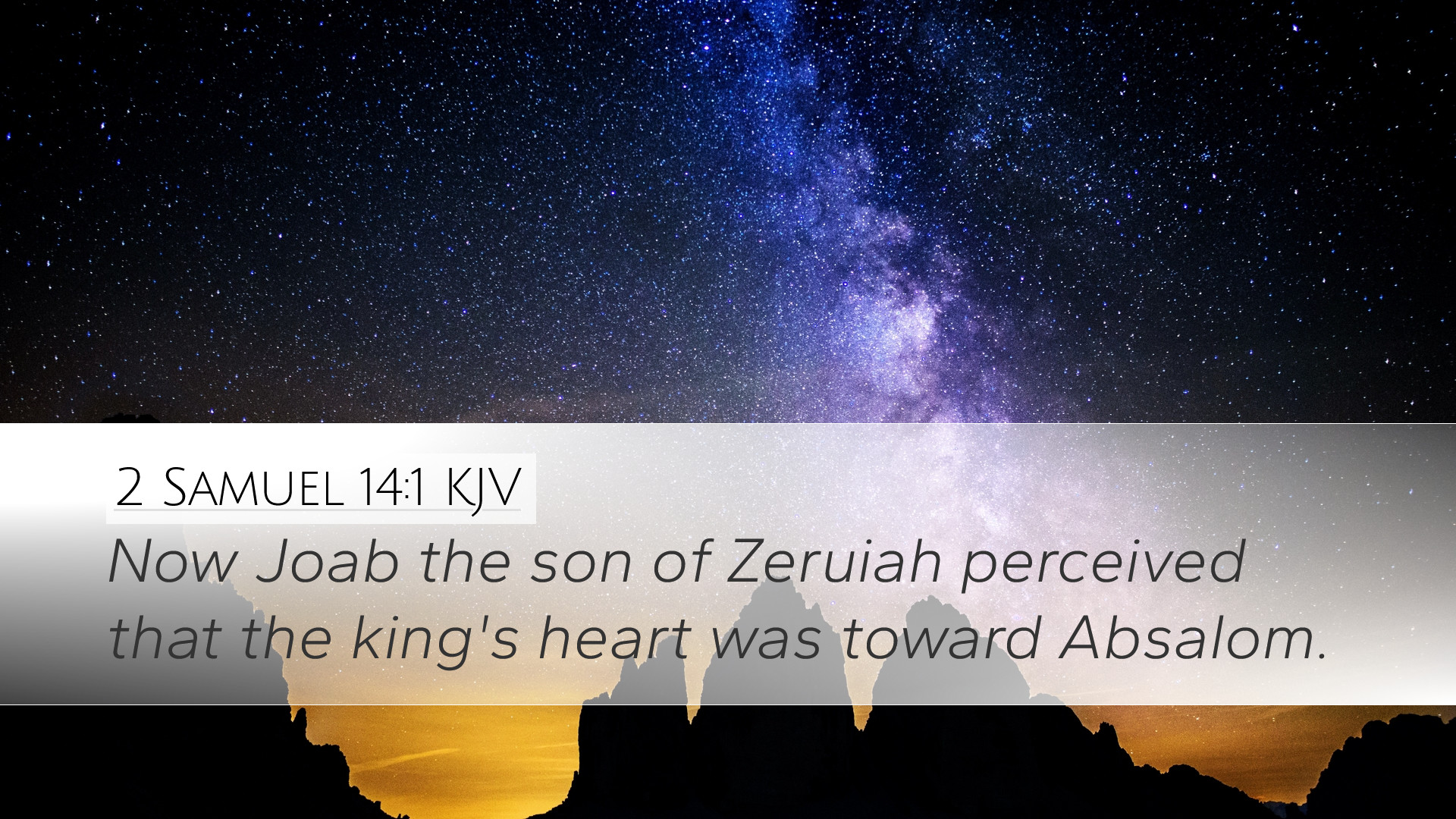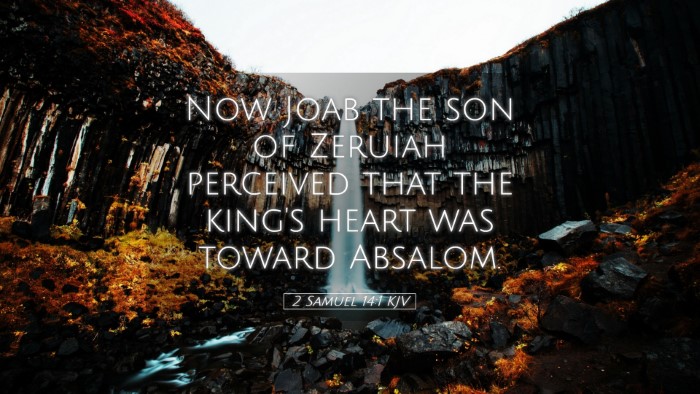Commentary on 2 Samuel 14:1
Verse Context: 2 Samuel 14:1 states: "Now Joab the son of Zeruiah perceived that the king's heart was toward Absalom." This verse introduces a significant turning point in the narrative of King David’s family and serves as a prelude to Abigail’s intervention concerning Absalom.
Overview of the Verse
This verse captures the sentiments of King David regarding his estranged son, Absalom, after the latter had murdered Amnon. Joab, the commander of David’s army, recognizes the king’s unspoken longing for reconciliation with Absalom, which sets the stage for his subsequent actions.
Insights from Public Domain Commentaries
-
Matthew Henry’s Commentary
Henry observes that Joab's astuteness allows him to discern the king's affections despite David’s outward restraint. He suggests that the king's heart was heavy, showcasing the emotional turmoil a father feels for his son.
Furthermore, Henry emphasizes the role of Joab as a shrewd adviser who understands the politics of the court and the emotional realities of David's situation. He recognizes that reconciliation with Absalom is essential for both personal and political stability.
-
Albert Barnes’ Notes
Barnes comments on the dynamics of father-son relationships within the text, noting the tension between David's paternal instincts and his responsibilities as king. He points out that this internal conflict is a recurring theme in David's life and reign.
Barnes also highlights that Joab's perception of the king's heart indicates a deep understanding of human emotions and relationships within leadership. He asserts that David’s desire for Absalom is an expression of his mercy and illustrates God’s grace, showing that redemption is always a possibility.
-
Adam Clarke’s Commentary
Clarke offers a thorough analysis regarding Joab’s strategic thinking. He argues that Joab’s actions stem from a desire to consolidate power and ensure a stable kingdom, understanding that a divided kingdom may lead to his own downfall.
He notes the implications of Joab's realization about the king's heart; it reflects the deep familial love and longing characteristic of David, which resonates throughout the narrative of their reconciliation.
Theological Implications
This verse is rich in theological implications, illustrating the struggles of leadership, the idea of reconciliation, and the longing for familial harmony. It portrays God's nature as one who desires reconciliation with humanity, paralleling David’s complex relationship with Absalom.
Application for Pastors and Theologians
The intersection of duty, love, and grace presents a compelling case for pastoral reflection. Leaders are called to discern the emotional landscapes of those they lead, recognizing the importance of compassion in leadership roles. This text serves as a reminder of the complexities of familial relationships and the healing that is possible through forgiveness and understanding.
Conclusion
In 2 Samuel 14:1, we witness a moment of profound emotional intensity that beckons us to consider the relationships we foster as leaders and the compassion we extend to those we govern. The reflections of Henry, Barnes, and Clarke collectively invite us into a deeper understanding of the interplay between authority and affection, calling us to seek avenues for reconciliation in our own lives and communities.


